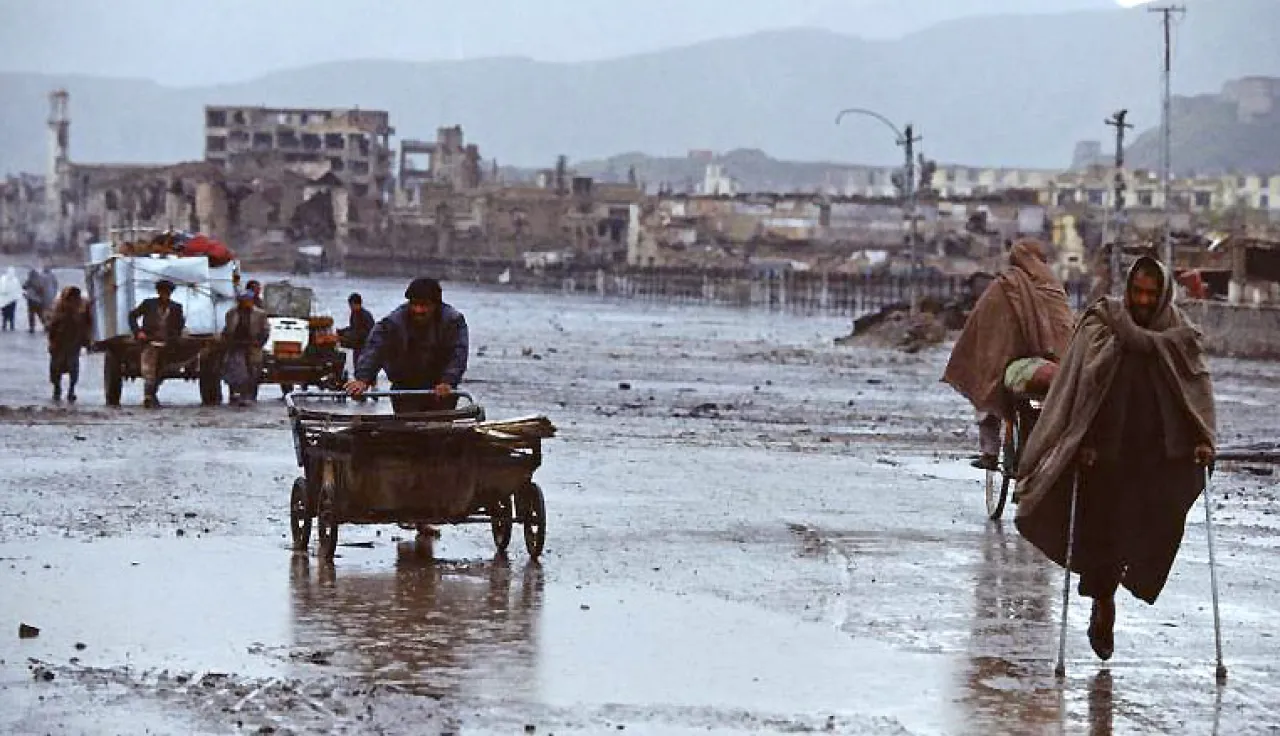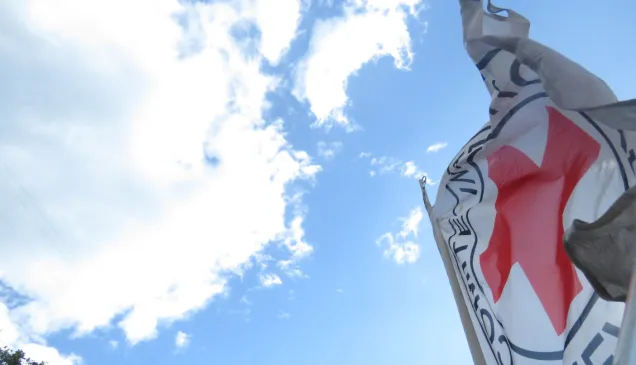People with disabilities in emergencies

ICRC-hosted event calls for greater awareness and inclusion of people with disabilities during humanitarian crises.
More needs to be done to ensure that people with disabilities – both mental and physical – are not left behind or forgotten during humanitarian crises.
This was the core message coming out of a briefing in Geneva hosted jointly by the ICRC and Human Rights Watch on "Persons with Disabilities in Emergencies."
Speakers at the event included Catalina Devandas, the UN Special Rapporteur on the Rights of Persons with Disabilities, Vladimir Cuk, acting executive director of the International Disability Alliance, Shantha Rau Barriga, director of disability rights at Human Rights Watch and Pascale Meige, ICRC deputy director of operations.
The meeting heard that one billion people worldwide live with a disability – 15 per cent of the global population. And this percentage is even higher in countries dealing with conflict and poverty.
At times of crisis, people with disabilities are not only vulnerable to violence and abandonment, but they also face significant difficulties in obtaining basic services such as food, water, sanitation and health care.
"These are major and complex challenges, and unfortunately they are not always present in mainstream humanitarian debates," said Catalina Devandas.
"The increased number of humanitarian crises and natural disasters has a significant impact on the lives of persons with disabilities. But they are often excluded from initial humanitarian responses."
She drew attention to the UN Convention on the Rights of Persons with Disabilities, and specifically to Article 11 (Situations of risk and humanitarian emergencies). This calls on the international community to ensure the safety and protection of people with disabilities during situations of risk and humanitarian emergencies.
She said it was time to turn words into action and called on States, international agencies, NGOs and the UN to ensure a strong focus on people with disabilities at next year's World Humanitarian Summit.
"The lack of awareness results in an absence of services for persons with disabilities, and that's exactly what we are currently seeing in Nepal," she said.
Creating new barriers
Vladimir Cuk from the International Disability Alliance told the meeting that universal design and accessibility standards had to be incorporated as part of any emergency response. He said people with disabilities needed to be part of the process, otherwise new barriers would simply be created.
He also raised serious concerns about the evacuation in emergencies of people with disabilities: "In both wealthy and poor countries, we are getting reports that people with disabilities are the last to be reached and the last to be rescued. This results in a significantly disproportionate number of deaths for people with disabilities."
Human Rights Watch recently published a report on the situation facing people with disabilities in the Central African Republic. The organization has called on the UN to do more to protect people with disabilities and to gather data on their numbers and their needs.
"We also want peacekeeping missions to develop an action plan on how to include and support persons with disabilities, even including their voice in camp planning and ensuring that infrastructure allows for people with disabilities to access various services," said HRW's Shantha Rau Barriga. "Information should also be available in "easy-to-read" formats or in sign language."
She described situations in IDP camps in CAR where people with disabilities had to crawl into toilets or were unable to reach food distribution points. She added that many humanitarian agencies were unaware of the problem.
Disability as a consequence of war
Pascale Meige, deputy director of operations, said the ICRC had historically focused on disability as a consequence of war – the wounded on the battlefield and the victims of mines and unexploded devices.
But she said the organization was looking to shift this "narrow definition" of disability in order to include how people with disabilities lived through war.
"The ICRC is currently updating the Commentaries on the Geneva Conventions, which date from 1952. Through these revised Commentaries, we are very hopeful that we can emphasise that the provisions of IHL regarding the sick, the wounded and people with disabilities fully correspond to the modern context and do afford protection to people with disabilities."
She spoke of the ICRC's significant and long-running activities in terms of war surgery and physical rehabilitation services. She said the ICRC had provided support to 172 physical rehabilitation centres in almost 50 contexts, helping around 280,000 people a year.
She also noted the work of the ICRC's Special Fund for the Disabled in ensuring long-term support for 115 physical rehabilitation centres in low-income countries.
The ICRC recently adopted its first-ever Framework on Persons with Disabilities and is supporting a Movement-wide push to promote the full inclusion of people with disabilities.
"We now look deeper into ways to improve social inclusion for the beneficiaries of our physical rehabilitation services, through sport activities, micro-economic initiatives, livelihood support and vocational training," said Pascale Meige.
"We are focusing on the specific risks and needs of people with disabilities in all our responses. We already have considerable experience when it comes to visiting people in detention, for example. But there is a whole area of work that we can do in terms of economic security, water and habitat, health care and protection."



